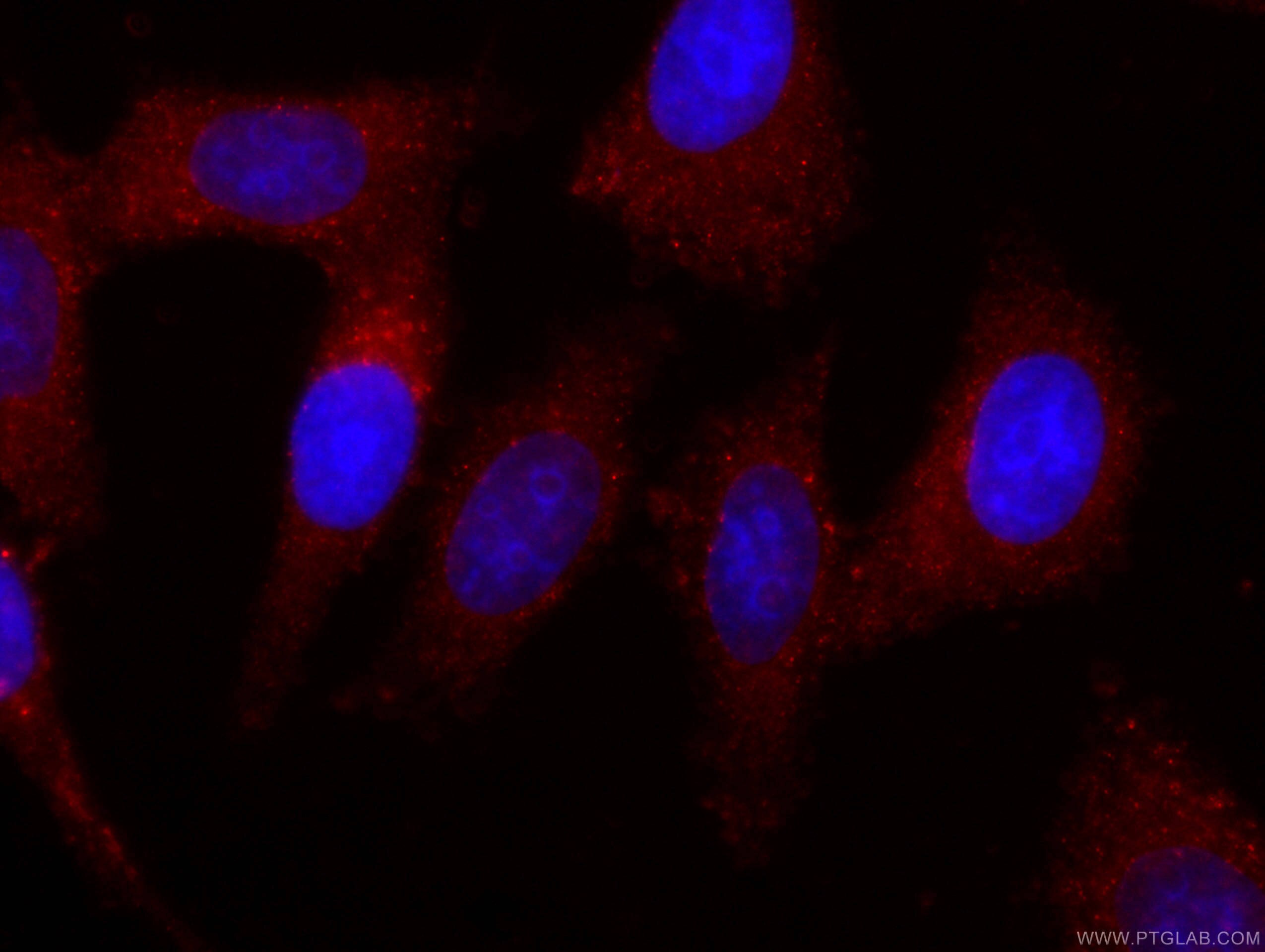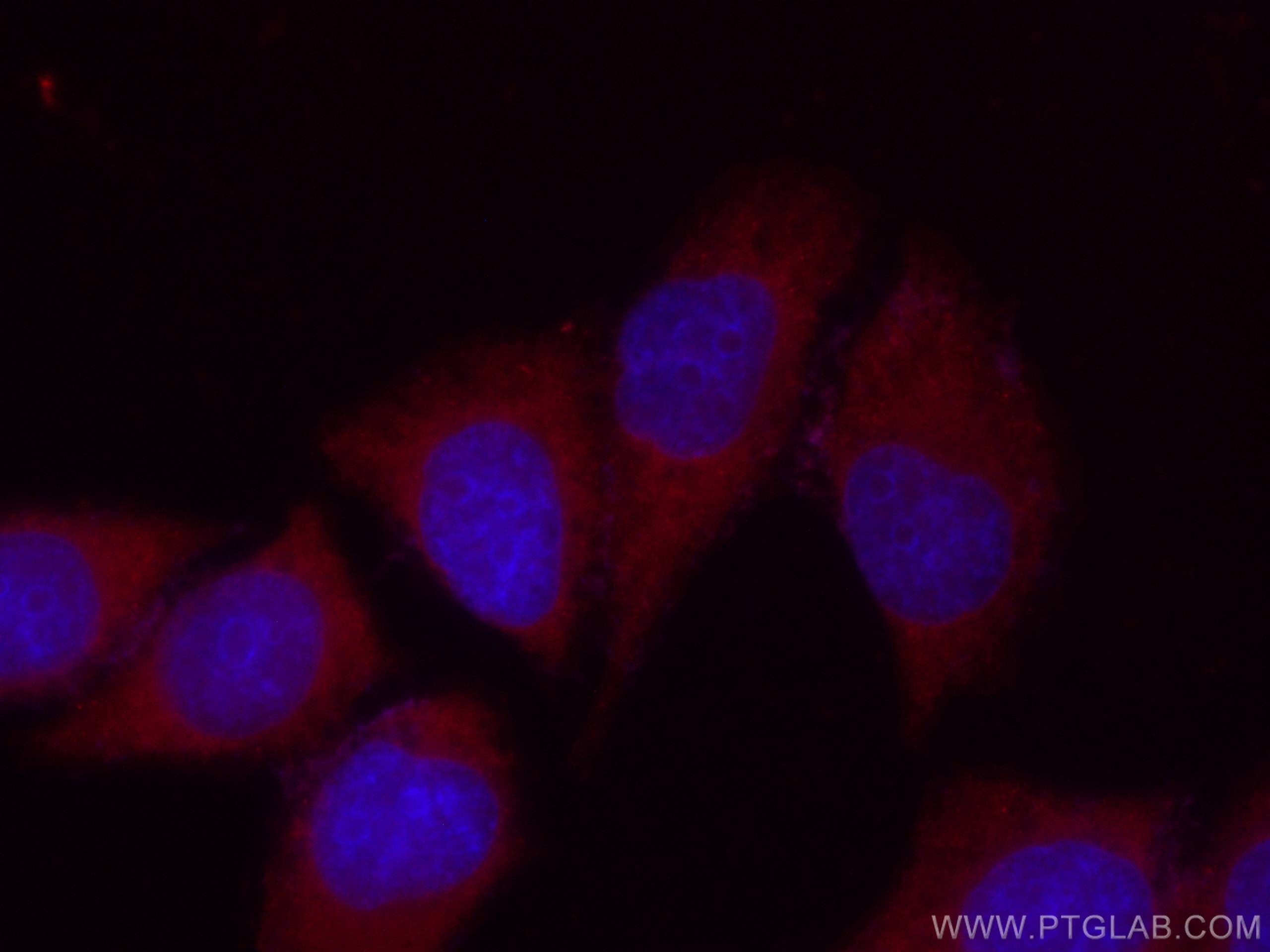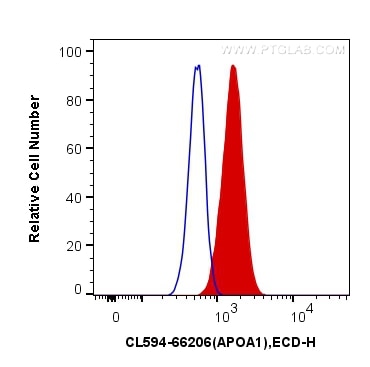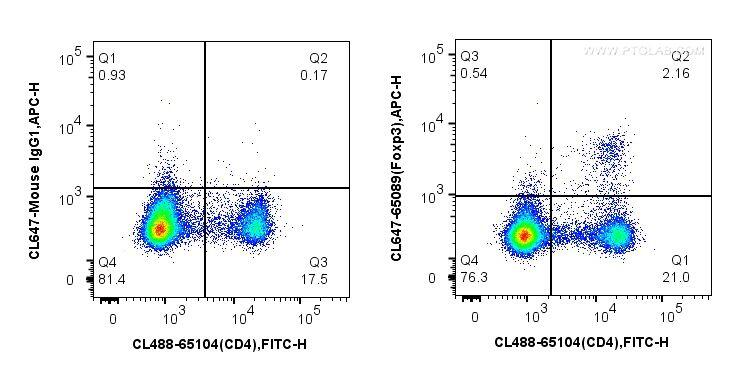Anticorps Monoclonal anti-Apolipoprotein AI
Apolipoprotein AI Monoclonal Antibody for FC (Intra), IF
Hôte / Isotype
Mouse / IgG2b
Réactivité testée
Humain, souris
Applications
IF, FC (Intra)
Conjugaison
CoraLite®594 Fluorescent Dye
CloneNo.
1C9G5
N° de cat : CL594-66206
Synonymes
Galerie de données de validation
Applications testées
| Résultats positifs en IF | cellules HepG2, cellules L02 |
| Résultats positifs en cytométrie | cellules HepG2 |
Dilution recommandée
| Application | Dilution |
|---|---|
| Immunofluorescence (IF) | IF : 1:50-1:500 |
| Flow Cytometry (FC) | FC : 0.40 ug per 10^6 cells in a 100 µl suspension |
| It is recommended that this reagent should be titrated in each testing system to obtain optimal results. | |
| Sample-dependent, check data in validation data gallery | |
Informations sur le produit
CL594-66206 cible Apolipoprotein AI dans les applications de IF, FC (Intra) et montre une réactivité avec des échantillons Humain, souris
| Réactivité | Humain, souris |
| Hôte / Isotype | Mouse / IgG2b |
| Clonalité | Monoclonal |
| Type | Anticorps |
| Immunogène | Apolipoprotein AI Protéine recombinante Ag21920 |
| Nom complet | apolipoprotein A-I |
| Masse moléculaire calculée | 31 kDa |
| Poids moléculaire observé | 26-28 kDa |
| Numéro d’acquisition GenBank | BC005380 |
| Symbole du gène | APOA1 |
| Identification du gène (NCBI) | 335 |
| Conjugaison | CoraLite®594 Fluorescent Dye |
| Excitation/Emission maxima wavelengths | 588 nm / 604 nm |
| Forme | Liquide |
| Méthode de purification | Purification par protéine A |
| Tampon de stockage | PBS avec glycérol à 50 %, Proclin300 à 0,05 % et BSA à 0,5 %, pH 7,3. |
| Conditions de stockage | Stocker à -20 °C. Éviter toute exposition à la lumière. Stable pendant un an après l'expédition. L'aliquotage n'est pas nécessaire pour le stockage à -20oC Les 20ul contiennent 0,1% de BSA. |
Informations générales
ApoA1 is a major protein component of high density lipoproteins (HDL) which is associated with reversed cholesterol transport, lipid/cholesterol binding, lecithin/cholesterol acyltransferase (LCAT) activation and specific receptors binding. It is synthesized in the liver and small intestine. Defects of ApoA1 cause low HDL level and systemic non-neuropathic amyloidosis. Serum concentration of ApoA1 is inversely related to the risk of developing atherosclerosis. This antibody was generated against the C-terminal region of human ApoA1.
Protocole
| Product Specific Protocols | |
|---|---|
| IF protocol for CL594 Apolipoprotein AI antibody CL594-66206 | Download protocol |
| FC protocol for CL594 Apolipoprotein AI antibody CL594-66206 | Download protocol |
| Standard Protocols | |
|---|---|
| Click here to view our Standard Protocols |





